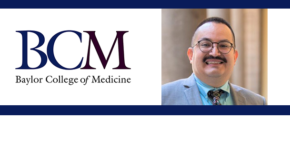Category: Astronomy
-

Antonin Affholder, University of Arizona – Could There Be Life on Titan?
Could the moon of another planet be a source for life as we know it? Antonin Affholder, post-doctoral researcher at the University of Arizona, discusses. Antonin Affholder obtained his PhD from the École Normale Supérieure, in Paris, France, working on developing models of ecosystems on other worlds to assess their habitability and to research biosignatures.…
-

Patrick Shober, Paris Observatory – The Case of the Missing Meteorites
Why do meteorites that land on Earth not match their asteroid brethren in space? Patrick Shober, postdoctoral fellow at the Paris Observatory and NASA’s Johnson Space Center, watches the skies for answers. Patrick Shober is a planetary scientist who investigates small solar-system bodies—from asteroids and comets to the spectacular fireballs their debris creates in Earth’s…
-

Moira Marsh, Indiana University Bloomington – Celestial Creatures and the Mythology Behind the Solar Eclipse
On today’s Indiana University’s Total Solar Eclipse segment: Humans have long used stories to explain things we can’t understand, and an eclipse is no different. Moira Marsh, researcher and folklore librarian, uses mythology to tell the story of the darkened daytime sky. Moira Marsh is a folklorist and librarian at Indiana University Bloomington. She earned…
-

Catherine Pilachowski, Indiana University Bloomington – What to Expect During a Total Solar Eclipse
On Indiana University’s Total Solar Eclipse Week: Astronomers are about to get a rare chance for some breakthrough discoveries. Catherine Pilachowski, Daniel Kirkwood Chair and distinguished professor of astronomy, explores how. Professor Pilachowski holds the Kirkwood Chair in Astronomy at Indiana University Bloomington, where she teaches and conducts research on the evolution of stars and…
-

Hin Cheung, Indiana University Bloomington – How to Safely View a Total Solar Eclipse
On Indiana University’s Total Solar Eclipse Week: Safety is always key when it comes to the sun. Hin Cheung, clinical assistant professor at the School of Optometry, explains how to view the eclipse without causing damage to your eyes. Dr. Hin Cheung joined the Indiana University School of Optometry in July 2021 as a clinical…
-

Kimberly Rosvall, Indiana University Bloomington – What Can We Expect Animals to do During a Solar Eclipse?
On Indiana University’s Total Solar Eclipse Week: How will migrating birds treat the solar eclipse? Kimberly Rosvall, associate professor of biology, asks for help in finding out. Kimberly Rosvall is an Associate Professor in the Department of Biology at Indiana University Bloomington. She is also affiliated with IU’s internationally-recognized Program in Animal Behavior. Rosvall’s overarching…
-

Philip Powell, Indiana University Bloomington – Economic Impact of a Solar Eclipse
On Indiana University’s Total Solar Eclipse Week: Special events can bring an abundance of tourism dollars to an area. Philip Powell, clinical assistant professor of business economics and public policy at the Kelley School of Business, looks into the effects of eclipse tourism. Executive Director of the Indiana Business Research Center and Associate Clinical Professor…
-

Dirk Grupe, Northern Kentucky University – New Discoveries About A Familiar Black Hole
On Northern Kentucky University Week: Black holes continue to fascinate us. Dirk Grupe, associate professor and chair of the department of physics, geology and engineering technology, explains why. Dr. Dirk Grupe (“Group-ah”), Northern Kentucky University associate professor and chair of the Department of Physics, Geology and Engineering Technology. Prior to this position he has also…
-

Emmanuel Urquieta, Baylor College of Medicine – What Happens if Someone Dies in Space?
What happens if an astronaut dies in space? Emmanuel Urquieta, assistant professor in the Center for Space Medicine at Baylor College of Medicine, considers the options. Dr. Emmanuel Urquieta currently serves as Chief Medical Officer at the NASA funded Translational Research Institute for Space Health, where he manages research projects in areas ranging from radiation…
-

Chris Impey, University of Arizona – Super-Earths and the Search for Life Beyond Earth
We’re still waiting to see signs of life among the cosmos. Chris Impey, university distinguished professor in the department of astronomy at the University of Arizona, explores the skies for clues. Chris Impey is a University Distinguished Professor of Astronomy at the University of Arizona. He has over 230 refereed publications on observational cosmology, galaxies,…
